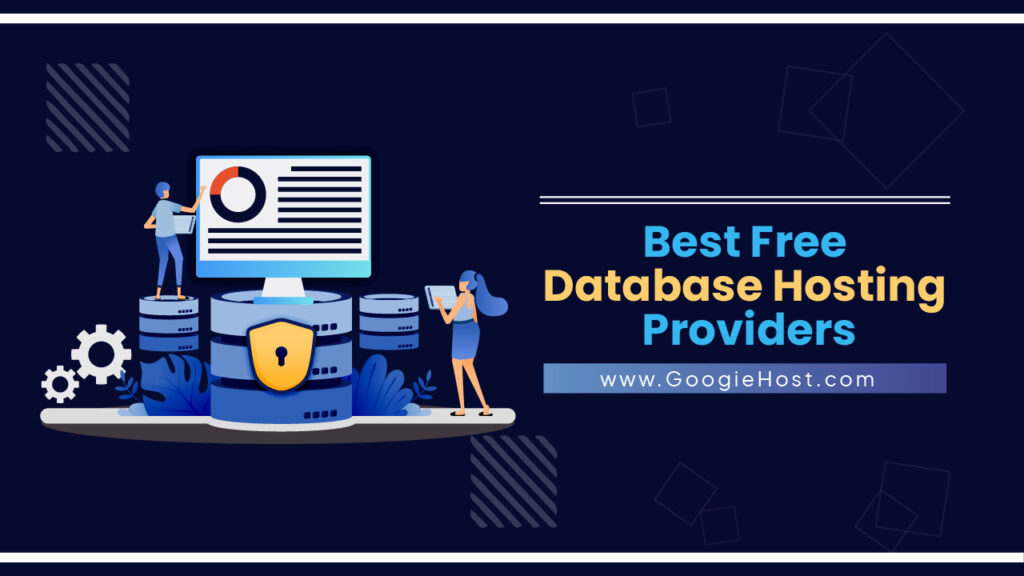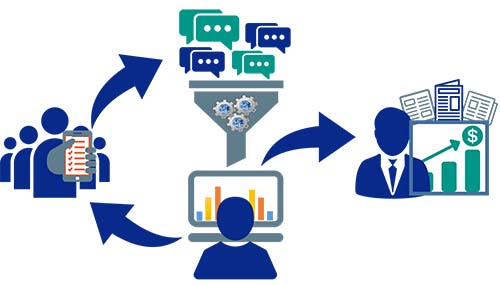Trick Functions to Search For When Selecting a Database Supplier
Picking a data source carrier is an important choice that can dramatically affect your organization's information and operations monitoring strategy. Amongst the important functions to think about are scalability alternatives, which make sure that your system can adapt to growing demands. Safety and security steps, performance metrics, and consumer assistance also play essential functions in this analysis procedure. As you evaluate these aspects, it ends up being noticeable that the option is not simply regarding functionality however additionally concerning lining up with your long-lasting vision. What other considerations might influence this important decision?
Scalability Options
When selecting a database company, comprehending scalability alternatives is important to ensuring that the picked remedy can fit future development. Scalability describes the capability of a database system to increase its capability and efficiency in response to raised need. There are 2 primary types of scalability: straight and vertical.
Upright scalability, or "scaling up," involves improving a solitary web server's sources, such as CPU, RAM, or storage. This method can be cost-effective and uncomplicated for smaller sized applications but might reach a limit where further upgrades are unwise or too costly.
Horizontal scalability, or "scaling out," involves adding more web servers to distribute the load. This technique enables higher flexibility and can fit significant increases in information quantity and individual web traffic (database provider). It is particularly beneficial for cloud-based data source remedies that can dynamically designate sources based on need

Protection Steps

When reviewing safety and security procedures, think about the application of security procedures (database provider). Data-at-rest and data-in-transit file encryption are vital to ensure that delicate info continues to be safeguarded, also in the occasion of a safety violation. In addition, search for companies that offer solid authentication mechanisms, such as multi-factor authentication (MFA), to even more improve accessibility control
Regular protection audits and conformity with industry standards, such as GDPR or HIPAA, are a measure of a supplier's dedication to information defense. In addition, inquire concerning their event response plan; a durable plan can reduce the effect of any type of potential protection occurrence.
Efficiency Metrics
Examining performance metrics is essential for companies to make certain that their picked data source company meets functional needs. Secret performance metrics include action throughput, time, and scalability, which collectively identify the efficiency of database operations under differing lots.
Action time is critical, read this post here as it reflects just how quickly the data source can refine inquiries and return results. Organizations ought to look for metrics that suggest typical reaction times throughout height and off-peak hours. Throughput, typically determined in purchases per 2nd (TPS), supplies understanding into the data source's capability to handle high volumes of requests without efficiency destruction.
Scalability evaluates the data source's capability to grow with the organization's needs. A robust data source company ought to demonstrate straight and vertical scaling capacities, enabling seamless changes as demands vary. Additionally, comprehending latency, particularly in dispersed systems, can aid organizations assess the responsiveness of the data source throughout various geographical areas.
Consumer Assistance
Dependable customer assistance is a keystone of efficient database administration, offering companies with the aid needed to maximize and solve concerns performance. When picking a data source supplier, assessing the level of consumer support they provide is necessary. A robust support system ought to include several networks of communication, such as phone, e-mail, and live chat, making certain that users can access assistance whenever they need it.
Furthermore, responsive assistance groups that are available 24/7 greatly boost the reliability of the data source service. Trigger response times and effective resolution of concerns can substantially reduce downtime and boost overall efficiency. It is additionally advantageous to think about the accessibility of committed support personnel, that can supply customized support based on an organization's specific requirements.

Prices Structure
When thinking about a data source carrier, the pricing structure is a critical element that can substantially influence a company's spending plan and overall approach. A adaptable and transparent rates design is important for aligning the database costs with business requirements - database provider. Organizations needs to assess whether the prices is based upon usage, per user, or a flat price, as each design can yield various economic effects over time
It is vital to examine any additional costs related to the supplier's services, such as information storage space charges, transaction prices, and support charges. Some companies may supply tiered prices, enabling scalability as the company expands, while others might enforce stringent limits that might come to be pricey as information needs increase.
In addition, companies ought to take into consideration the long-lasting value of the database remedy. While reduced preliminary prices can be appealing, they might not account for future upgrades, upkeep fees, or combination prices. Performing a complete cost-benefit evaluation will help identify the most ideal rates structure that balances efficiency, scalability, and assistance, ultimately making sure that the chosen database provider aligns with the company's financial and operational objectives.
Verdict
Finally, picking a database company demands careful consideration of numerous vital attributes. Scalability alternatives make sure flexibility to future development, while robust security steps protect delicate info. Reviewing efficiency metrics allows the identification of effective data sources, and available customer support enhances the total individual experience. A clear rates structure better contributes to informed decision-making. By thoroughly assessing these variables, organizations can make critical options that straighten with their functional needs and find more info long-lasting purposes.
Picking a data source provider is an essential decision that can dramatically impact your organization's data and procedures administration method.When choosing a data source supplier, comprehending scalability alternatives is crucial to making certain that the chosen option can fit future growth. When picking a data source carrier, examining the level of customer support they provide is necessary.When taking into consideration a data source supplier, the prices framework is a crucial aspect that can significantly affect an organization's spending plan and total method. Carrying out an extensive cost-benefit evaluation will help identify the most appropriate rates framework that stabilizes efficiency, scalability, and support, eventually guaranteeing that the picked data source carrier straightens with the organization's economic and operational goals.